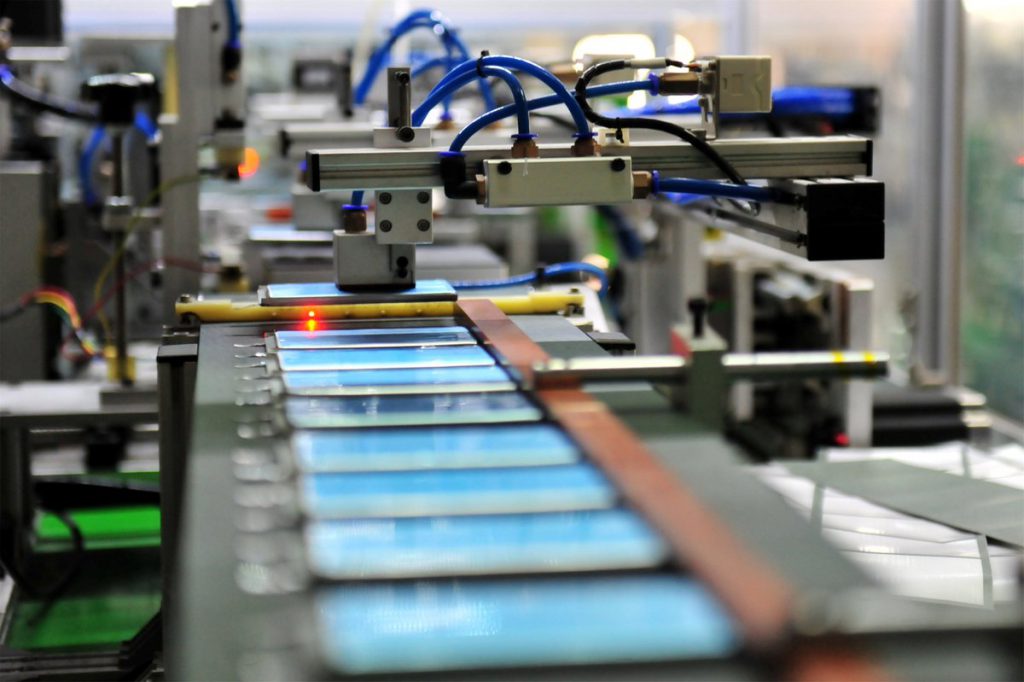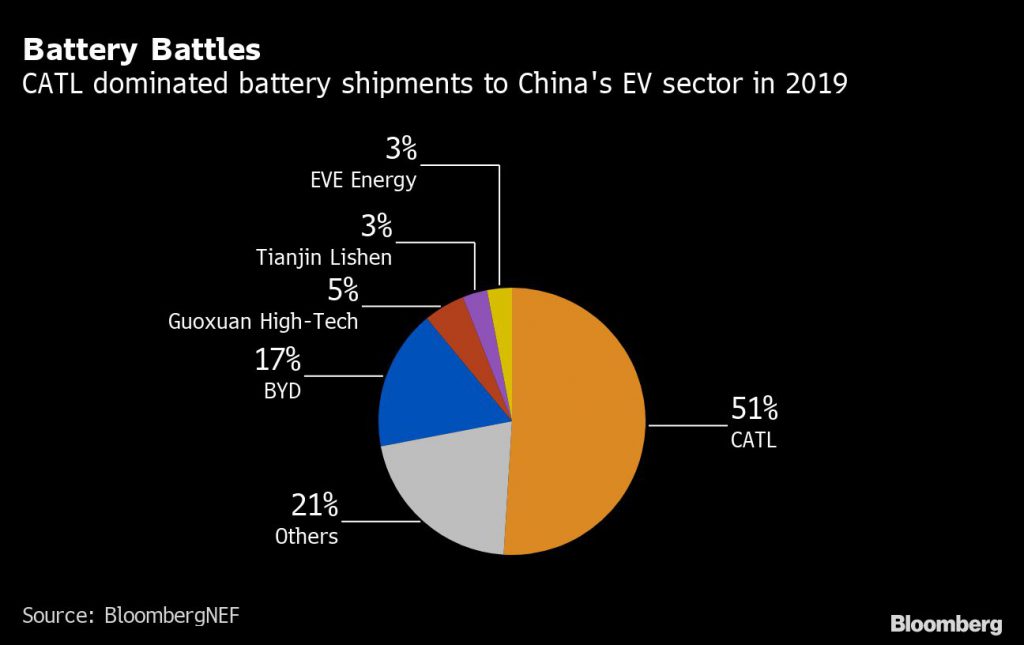Chinese battery maker may buy more metals before prices lift

EVE Energy Co., a Chinese producer of lithium-ion batteries for electric cars to earphones, is considering plans to step up purchases of key metals amid signs prices could soon rise from recent lows.
Huizhou, Guangdong-based EVE, which has pacts with automakers including Daimler AG, has seen tentative signals of a recovery in lithium and cobalt prices in China, meaning there’d be an advantage to lock in additional supplies now, Chairman Liu Jincheng said in a phone interview.
“We are seriously considering whether we can buy more while they are cheap now,” Liu said, adding that forecasts on the price outlook remain difficult.
Lithium prices are being supported by a recovery in demand for electric vehicles in China
The producer is weighing its metal purchasing plans as it seeks to expand output and narrow the gap on the world’s top battery makers. EVE Energy is the fifth largest supplier to China’s EV sector, with a 5% market share, trailing behind competitors including Contemporary Amperex Technology Co. Ltd. and BYD Co., according to BloombergNEF data.
Prices of lithium chemicals plunged from mid-2018 as producers rushed to deliver more supply, overwhelming the pace of demand gains. The materials have stabilized in recent months, though remain at about half the level of peak values, BNEF said in a report this month.
“We are expecting both Chinese domestic and seaborne lithium prices to stay flat for the next three months, and pick-up toward the end of Q4,” BNEF’s head of metals and mining Sophie Lu said by phone. Cobalt prices have recovered as Covid-19 disruptions impacted supply, and there’s potential for China’s domestic prices to rise, she said.
Lithium prices are being supported by a recovery in demand for electric vehicles in China, according to Alice Yu, a Beijing-based analyst at S&P Global Market Intelligence.
The prospect of a tighter battery metals markets has been brought into focus after Tesla Inc. said it plans to secure future supply needs by producing its own lithium chemicals, in addition to agreements with existing manufacturers. Lithium demand from the battery sector is likely to increase ninefold through 2030, while cobalt requirements will grow threefold, BNEF forecasts.

As the battery sector builds scale and end-users demand more advanced technology, EVE’s Liu expects industry consolidation, with smaller players likely to find it harder to compete. “Unless they have a distinctive edge in their products, they will be forced to exit the battery race,” he said.
EVE has begun to review opportunities for potential partnerships, acquisitions or mergers in regions including the U.S., Europe, Japan and South Korea, according to Liu, who said he’s worked in the lithium-ion battery industry for 35 years.
“We have yet to find any suitable targets,” Liu said. “We’d want to look for the best in terms of equipment, and we are also concerned about the quality of production and management.”
(By Annie Lee)
{{ commodity.name }}
{{ post.title }}
{{ post.date }}




Comments